Politics
Singapore seeks to navigate US-China rivalry regardless of presidential election outcome
Published
6 months agoon
By
Ekwutos Blog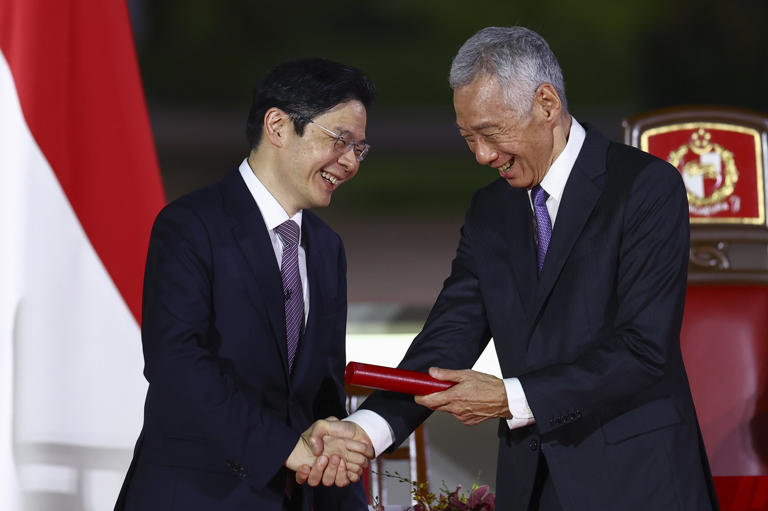
The city state has adapted well to the rivalry and is unlikely to shift from its hedging policy between Washington and Beijing, analysts say
As the United States presidential election draws closer, Singapore is keeping a close eye on how the outcome could affect its careful tightrope walk between the world’s largest economy and China amid their ongoing geopolitical rivalry and trade war.
The city state has been adapting well to the evolving realities arising from the fallout of the US-China rivalry, analysts say.
Regardless of who becomes the next US leader following the November 5 election – Vice-President Kamala Harris or ex-president Donald Trump – the fundamentals of America’s foreign policies towards China and Asia are unlikely to change drastically as much of the uncertainty has been factored in, according to analysts.
Do you have questions about the biggest topics and trends from around the world? Get the answers with SCMP Knowledge, our new platform of curated content with explainers, FAQs, analyses and infographics brought to you by our award-winning team.
“While Trump may inject greater uncertainty and unpredictability, a Harris presidency will not and cannot suddenly engender stability, peace and predictability,” said Dylan Loh, an assistant professor at Nanyang Technological University’s Public Policy and Global Affairs division.
Last week, Singapore’s Senior Minister and former prime minister Lee Hsien Loong warned that if Trump were to slap tariffs of 60 per cent or higher on Chinese goods in his second term as promised, it would put Singapore in “uncharted territory”.
“On the American side, there are not many issues where the Democrats and the Republicans agree on, but this is one [US policy towards China]. And that is a very serious matter. So whether it is Harris or whether it is Trump, that is not going to be changing,” Lee said at a business event last week.
A second Trump term would likely spell more disruptions for American allies and other countries, he said. “In particular, I think, what you can anticipate is that his attitude towards allies, towards America’s friends, will be different from what the Democrat administration has done in these last four years,” Lee added.
In an interview with The Economist in May, days before he became Singapore’s prime minister, Lawrence Wong described the city state as being neither pro-China nor pro-US but “pro-Singapore”. He stressed that Singapore must brace itself for the possibility of a decade or more of unpredictability as the US and China sought a new equilibrium in their relationship.
Last year, Singapore and China upgraded their free trade agreement, which would give businesses from the city state more access to Chinese markets. China has been Singapore’s biggest trading partner since 2013, with two-way trade totalling US$108.39 billion last year, according to data from both countries.
Singapore also has a free-trade agreement with the US since 2004, Washington’s first with an Asian country.
Meanwhile, regional countries such as Singapore and Malaysia have been closely monitoring the impact of the US-China tech war as global businesses seek a haven from the fallout.
Singapore has become one of the top destinations for global tech firms looking to expand their operations into the region, and is home to 80 of the world’s top 100 technology companies, according to a 2023 article published by the Economic Development Board.
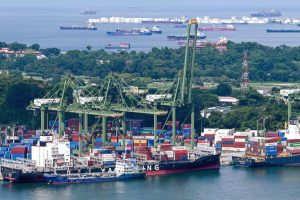
Singapore’s Pulau Brani port terminal. The country’s two biggest trading partners are China and the US. Photo: AFP
Hedging policy
Harris and Trump have so far been vague about their plans for Southeast Asia, according to analysts who spoke to The Post previously
Ongoing wars in Ukraine and the Middle East have diverted Washington’s attention from Southeast Asia, which could limit its ability to engage effectively with the region and Singapore, the analysts said.
While Trump was expected to be “more transactional” in dealing with Washington’s regional allies, Harris would likely adopt a “more personal approach” in dealing with the region, they added.
Singapore is expected to be agnostic about the next US president and is unlikely to depart from its hedging policy between Washington and Beijing, according to one analyst.
In an Asia New Zealand Foundation commentary published earlier this week, NTU’s Loh wrote that across the Trump and Joe Biden administrations in the US, ties between Washington and Singapore had not shifted drastically “from its historically strong and progressive character”.
He pointed out that there were important progress made in areas such as critical technologies, clean energy, and financial technologies throughout the two administrations.
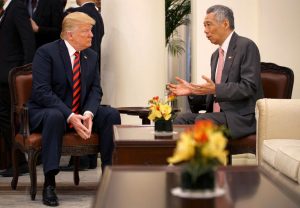
Then US President Donald Trump talks with then Singapore Prime Minister Lee Hsien Loong in the city state in 2018. Photo: AP
Relations between the US and Singapore were based on common interests and pragmatism, said Bilahari Kausikan, a former permanent secretary of Singapore’s foreign ministry.
“There is only one America which plays a vital role in maintaining balance in Asia – a role that is now acknowledged by traditionally non-aligned countries like India and Indonesia and even old enemies like Vietnam – so we will find a way of working with whoever occupies the White House,” he wrote in a Facebook post earlier this week.
If Trump were to carry out his promise to levy tariffs on all imports to promote American manufacturing, it would slow the world economy, Kausikan said.
He was referring to the Republican presidential candidate’s proposal to impose a 20 per cent tariff on goods from all US trading partners and at least 60 per cent on Chinese imports.
Kausikan said Trump could also adopt a tougher stance on Chinese goods using Southeast Asia as a “back door into the US”. While Harris would likely not ignore these issues, she might not “pursue them with the same sharpness” as Trump, Kausikan added.
“We have to understand that the US attitude towards trade has fundamentally changed and adapt ourselves to the new reality,” he said.

US Vice President Kamala Harris attends a news conference in Singapore in 2021. Photo: AP
Tan See Seng, research adviser at the S. Rajaratnam School of International Studies (RSIS), said any move to impose higher tariffs on US trading partners could prove “challenging” for Singapore, given the city state’s heavy reliance on global trade.
“If Trump wins, he is likely to reconvene another trade war with China. If that leads to China doubling down on its ongoing effort to ‘decouple’ its economy from the US, Singapore’s economy will be affected but it’s unclear at this point exactly how so,” he added.
On the other hand, Harris would likely take on a more “nuanced strategy” if she were to become president, Tan said. Regardless of the next occupant of the White House, Singapore would have to find a “sweet spot” to manage its ties with China and the US, he added.
The dynamics within the Democratic and Republican parties would also influence the approach of the US towards China, said Chong Ja Ian, a political scientist from the National University of Singapore.
Some Republicans have been calling for a tougher approach towards Beijing while others from the same party preferred for Washington to maintain the status quo, he said.
“We’re not sure, even after the presidential election, which of these voices will win out within the different parties. If Trump wins, he cycles through these people quickly so there could be a lot of vacillation among these different kinds of voices,” he said.
In comparison, Washington’s China policy could be more “gradual” under a Harris administration, he added.
Singapore and other Southeast Asian countries have learnt to navigate through the US presidential cycles every four years, including their impact on Washington’s relationship with China, analysts said.
Tan from RSIS said: “China may respond a little differently to the US depending on who is leading America and Singapore will need to adroitly go with the flow.”
More Articles from SCMP
Art Basel Paris boosts city’s Art Week, full of art fairs, exhibitions and Hollywood stars
Wet markets at some public housing estates in Hong Kong no bargain for residents, poll finds
Teaching Hong Kong’s rule of law and fostering patriotism are ‘inseparable’: justice minister
Hong Kong can fulfil its hydrogen ambitions via Foshan, suggests start-up
This article originally appeared on the South China Morning Post (www.scmp.com), the leading news media reporting on China and Asia.
Copyright (c) 2024. South China Morning Post Publishers Ltd. All rights reserved.
You may like
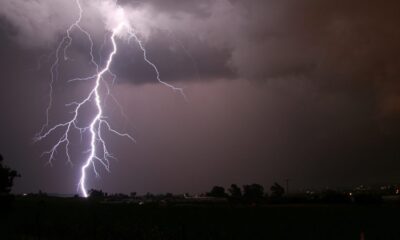

Thunderstorm kills three in Imo, four others wounded


Wike’s Supporters Postpone Bayelsa Rally


Wike vs Fubara: I’m impartial in Rivers political crisis – Ibas


A lot of people don’t know this but do you know that all your internet connections and services are powered by Glo, not all but majority is powered by an under see cable called GLO1 THAT’S owned by Glo1.


P0LICE IS YOUR FRIEND is not just a statement, but a Fact
If you are afraid of insecurity in your village to the extent you cannot live or operate from there, then you are not qualified to answer a Dibia, Ezenwanyi, Nze, Obi, Ezeani, Igwe.- Nze Tobe Osigwe
Politics
Wike’s Supporters Postpone Bayelsa Rally
Published
11 minutes agoon
April 13, 2025By
Ekwutos Blog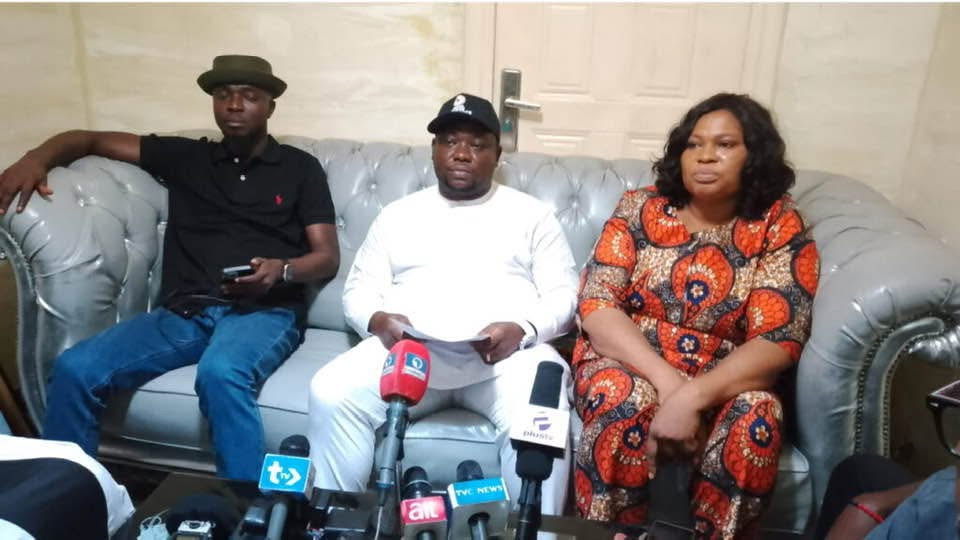
According to Ekwutosblog Supporters of Nyesom Wike, minister of Federal Capital Territory (FCT), have postponed their planned rally in Bayelsa state.
Ekwutosblog reports that George Turnah, lead convener of pro-Wike group
NEW Associates, announced this at a press conference in Yenagoa.
The rally was intended to express solidarity and appreciation for President Bola Tinubu and Minister Wike for facilitating the appointment of prominent Bayelsa indigenes into key positions.
Bayelsa government however opposed the rally, and a state high court had issued an order restraining them from holding the event.
The event also coincides with another planned rally by supporters of Douye Diri, governor of Bayelsa, aimed at supporting Diri on the same date, at the same venue, and at the same time.
Speaking at the press conference on Friday, Turnah said the pro-Wike rally announced that the rally has been moved to April 26 to avoid potential clashes.
Politics
Wike vs Fubara: I’m impartial in Rivers political crisis – Ibas
Published
1 hour agoon
April 13, 2025By
Ekwutos Blog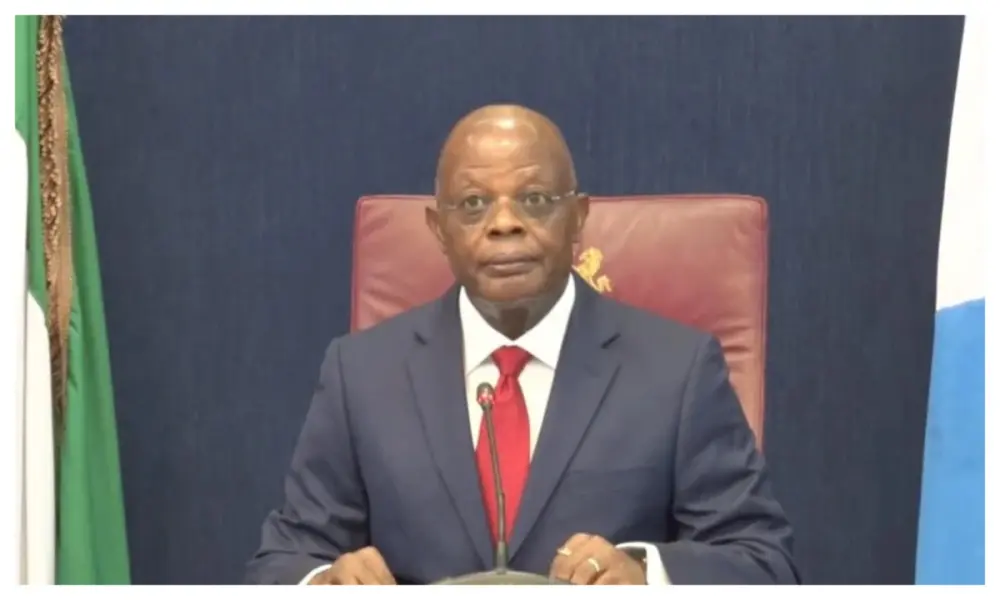
The Sole Administrator of Rivers State, Vice Admiral Ibok-Ete Ibas (retd), has declared his impartial stand in the political crisis rocking the state.
Ibas vowed to uphold the law and ensure that all aggrieved parties irrespective of political leanings have a voice in the future.
He made the appeal at a meeting with the heads of youth organisations and stakeholders, led by the Rivers State Chairman of National Youth Council of Nigeria, Nwisabari Bani, at Government House in Port Harcourt on Saturday.
According to Ibas: “It is important to restate my impartial stand on the political crisis that has plagued our State.
“I remain committed to upholding the law and ensuring that all individuals, irrespective of their political affiliations, have a voice in the future of Rivers State. My administration will continue to focus on the collective good of our people.”
President Bola Tinubu appointed Ibas as the Sole Administrator of Rivers State following the political crisis rocking the state.
The crisis started between suspended Governor Sim Fubara and the Minister of the Federal Capital Territory, FCT, Nyesom Wike, shortly after the governor assumed power in 2023.
Politics
Peter Obi Is the Stingiest Human Being, We Worked for Him, He Didn’t Give Us Shishi – Michael Piper
Published
10 hours agoon
April 12, 2025By
Ekwutos Blog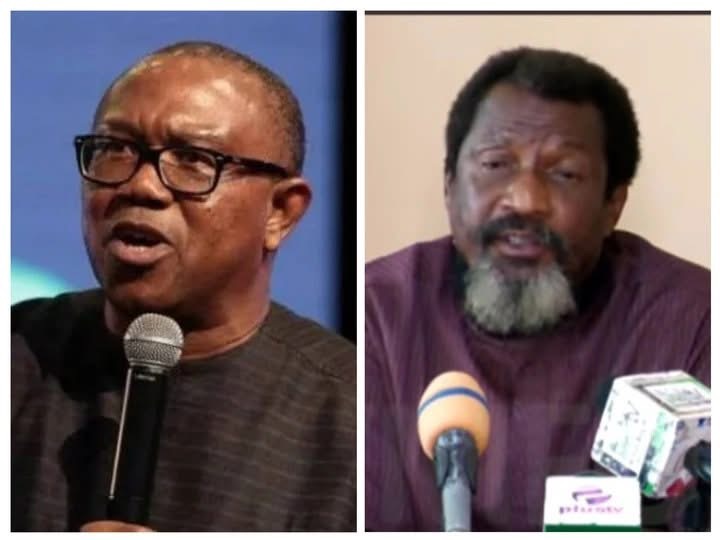
In a video posted by Symfoni, Michael Piper who was a member of Obedience for a Better Nigeria accused Peter Obi of being extremely stingy, claiming that despite the wide support he received from civil society groups and media personalities during his campaign, Obi offered no financial support.
In his statement, he said;
”Peter Obi no dey give Shishi. He’s a multi-billionaire and one of the stingiest human beings you will ever meet, Even when we were campaigning for Peter Obi, even those who were bloggers, popular bloggers, he didn’t even give them money for data.”
Piper made it clear that he personally received nothing from Obi throughout the campaign period.
“I campaigned for Peter Obi for 8 months. I never received a penny from him. If Peter Obi gave me one naira, please, they should publish it anywhere.”
According to Piper, the Labour Party’s success in 2023 was due to the collective effort of civil society actors, not Obi’s personal ideology. He warned that Obi’s presence is now turning the party into a war zone.

Thunderstorm kills three in Imo, four others wounded

Wike’s Supporters Postpone Bayelsa Rally

Wike vs Fubara: I’m impartial in Rivers political crisis – Ibas
Trending

 Trending6 months ago
Trending6 months agoNYA demands release of ‘abducted’ Imo chairman, preaches good governance
- Business6 months ago
US court acquits Air Peace boss, slams Mayfield $4000 fine

 Politics6 months ago
Politics6 months agoMexico’s new president causes concern just weeks before the US elections
- Entertainment6 months ago
Bobrisky transferred from Immigration to FCID, spends night behind bars
- Entertainment6 months ago
Bobrisky falls ill in police custody, rushed to hospital

 Politics6 months ago
Politics6 months agoRussia bans imports of agro-products from Kazakhstan after refusal to join BRICS

 Politics6 months ago
Politics6 months agoPutin invites 20 world leaders
- Politics1 year ago
Nigerian Senate passes Bill seeking the establishment of the South East Development Commission.

